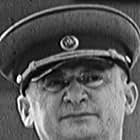City 40
- 2016
- 1h 13m
IMDb RATING
6.5/10
1.6K
YOUR RATING
Behind the walls of a forbidden city, the only thing more dangerous than its secrets is the truth.Behind the walls of a forbidden city, the only thing more dangerous than its secrets is the truth.Behind the walls of a forbidden city, the only thing more dangerous than its secrets is the truth.
- Awards
- 2 nominations
Lavrenti Beria
- Self
- (archive footage)
Viktor Fetisov
- Self - (Director of Mayak Nuclear Plant)
- (archive footage)
Mikhail Gorbachev
- Self
- (archive footage)
Igor Kurchatov
- Self
- (archive footage)
Alexander Litvinenko
- Self
- (archive footage)
Vladimir Putin
- Self
- (archive footage)
Joseph Stalin
- Self
- (archive footage)
- (as Iosif Stalin)
Boris Yeltsin
- Self
- (archive footage)
- Director
- Writers
- All cast & crew
- Production, box office & more at IMDbPro
Storyline
Did you know
- TriviaThere are a series of intertitles throughout the film which read:
- To keep their location hidden from the enemy, Mayak and City 40 were not placed on any map.
- "Plutonium Lake" feeds into the Techa River, which is the region's main water source and one of the most contaminated places on Earth.
- Half a million people living in the Ozersk region have been exposed to five times the amount of radiation as those affected by Chernobyl.
- After the dissolution of the Soviet Union, Russia's secret cities were suddenly recognized as places on the map.
- Mayak stores an estimated 50 tons of weapons-grade plutonium and 38 tons of highly enriched uranium.
- Since her last interview, Nadezhda Kutepova was interrogated by the Russian secret police under their "foreign agent" law.
- GoofsAt around 43:40 into the documentary, the second lake identified as "Lake Irtyash" appears to actually be Lake Karachay (which as of 2017 has been completely filled in). The dump truck dumping shown was likely not dumping solid radioactive waste as implied, but was part of the effort to fill in and cover the lake to prevent radiation from escaping.
- Quotes
Nadezhda Kutepova: My name is Nadezhda Kutepova and I'm a native of Ozersk. I was born here. We were told we live in a secret place. There were spies all over, sneaking around, gathering information. My mother used to warn me, 'Darling, never say where you are from or a Black Mariah will takes away and you'll never see your parents again. Let state secrets stay secret.'
- SoundtracksDarker Than Midnight
Music by Michael A. Levine
Lyrics by Michael A. Levine & Marina Verenikina
Performed by Marina Verenikina
Featured review
Saw this at the Movies That Matter film festival 2017 in The Hague. The first half of the documentary presents a good overview of the purpose of City 40, what is happening there, what binds its inhabitants to the city, and what urges them to stay there. All this is perfectly understandable, despite the fact that the people living there have a restricted life and cannot tell anything about it to the outside world. But its infrastructure and provisioning is far better than elsewhere in the country, and luxury goods as well as cultural events are available, also much better than in the rest of the country. And as one of the talking heads said: "scientists are busy with splitting atoms, and the rest does not interest them as long as they can continue with splitting atoms." Having a scientific background myself in physics, I fully recognize the truth in this statement.
The second half was more worrying and made us aware of hidden side effects, particularly considering environmental issues with nuclear waste and accidents, of which Chernobyl is just an infamous example. Same applies to the people living in the city, who must sustain radiation and related dangers much more than at other places. Though not proven, there were suspicious effects on offspring due to genetic problems, probably becoming worse in future generations. I would not be surprised when there are many more of such places, hidden for us in the interest of National Security, and certainly not in former communist countries alone, but also in "our" part of the world.
The second half was more worrying and made us aware of hidden side effects, particularly considering environmental issues with nuclear waste and accidents, of which Chernobyl is just an infamous example. Same applies to the people living in the city, who must sustain radiation and related dangers much more than at other places. Though not proven, there were suspicious effects on offspring due to genetic problems, probably becoming worse in future generations. I would not be surprised when there are many more of such places, hidden for us in the interest of National Security, and certainly not in former communist countries alone, but also in "our" part of the world.
Details
Contribute to this page
Suggest an edit or add missing content



















